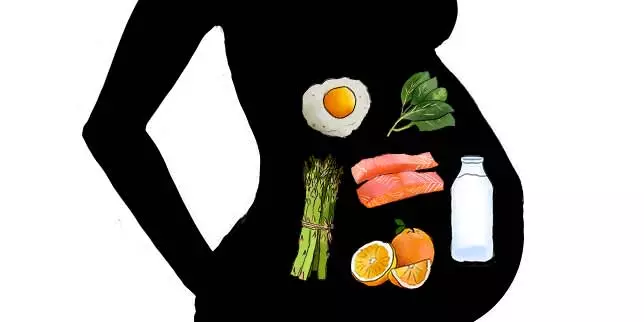Pregnancy is often romanticized as a time of indulgence, encapsulated in the phrase “eating for two.” While there’s a certain freedom associated with enjoying comfort foods like ice cream and donuts during this unique period, the reality is that what you consume has profound effects on both your health and that of your developing child. As the body undergoes significant changes, particularly in the first trimester, making informed dietary choices becomes not only beneficial but crucial.
During the early stages of pregnancy, the fetus undergoes critical development, particularly in forming essential systems such as the brain, spinal cord, and critical organs. Therefore, women should prioritize a nutritious, well-rounded diet over frivolous eating. Contrary to popular belief, the first trimester does not require an increase in caloric intake; instead, it necessitates an emphasis on nutrient density. This period is foundational for the health of both the mother and the child, making awareness of nutrition all the more vital.
Many expectant mothers grapple with nausea and food aversions, which can limit their ability to consume a well-balanced diet at times. Nonetheless, focusing on nutrient-rich foods, including proteins, healthy fats, and complex carbohydrates, can mitigate discomfort and lead to a more favorable experience during pregnancy. These components provide vital vitamins and minerals, boost energy levels, and help manage potential pregnancy symptoms such as swelling and fatigue.
One practical strategy is to convert meals into smaller, frequent servings throughout the day. This method aids in digestion and helps prevent nausea, while ensuring adequate caloric and nutritional intake. Pregnant women should strive to select foods rich in nutrients while avoiding those deemed unsafe, such as raw seafood and deli meats, to support a thriving pregnancy.
Among the essential nutrients to incorporate into the diet, folate stands out as a priority. This B-vitamin not only supports the placenta but also plays a crucial role in preventing neural tube defects. Pregnant women should aim for around 800 micrograms daily, achievable through leafy greens, legumes, and fortified grains. Additionally, including DHA, an omega-3 fatty acid crucial for brain development, is significant. Sources like fatty fish, flaxseed oil, and enriched eggs contribute to the necessary intake of about 1,000 milligrams per day.
Iron is another crucial nutrient, especially during the initial stages of pregnancy. It supports increased blood volume, necessary for both the mother and baby, and helps prevent complications such as low birth weight. Pregnant women are advised to increase their iron intake to approximately 27-30 milligrams daily, which can be sourced from lean meats, beans, and fortified cereals.
Zinc, although less highlighted, plays a vital role in cell division and DNA synthesis and contributes to maternal health. Daily requirements are around 11 milligrams, and while prenatal vitamins usually cover these needs, consulting with a healthcare provider can clarify supplementation requirements.
Finally, vitamins A and D are essential for fetal development; vitamin A aids in forming organs and systems, while vitamin D promotes strong bone development as well as immune function. Consuming a variety of dairy products, colorful fruits, and vegetables can provide a sufficient intake of these vital fat-soluble vitamins.
Pregnancy can feel daunting, particularly when faced with dietary considerations and the overwhelming array of nutritional advice. However, it is crucial to understand that adopting a mindful approach to nutrition can pave the way for a healthier pregnancy. Focusing on small, nutrient-dense meals and taking stock of essential vitamins and minerals are proactive steps any expectant mother can take.
Moreover, support from healthcare professionals, such as prenatal health coaches or registered dietitians, can provide personalized insights into dietary needs during this transformative period. As the body prepares to nurture new life, embracing a nourishing approach to food not only fosters a healthier pregnancy but also leads to better outcomes for the future child.
In essence, while the temptation to indulge is palpable, prioritizing the right nutrients ensures a healthy and vibrant pregnancy, laying down the groundwork for a thriving little one. With thoughtful choices and an awareness of dietary needs, every mother can contribute positively to her child’s journey into the world.

